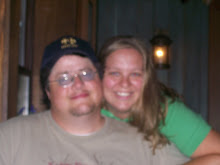About a year ago, I discovered Robin Skelton's book 'The Practice of Poetry'. About six months later, I discovered that Skelton was a witch. The first discovery was monumental; the second, catastrophic.
Skelton's book is far and away the best book on writing that I have ever encountered (and I have encountered lots of books on writing). This is a dense, intelligent book without the effeminate, la-te-da kind of prompts one finds in many books on the subject. The author reflects deeply on the psychology of poetry writing, including the interminable hang-ups, insecurities, and other convolutions that confound the aspiring poet, and generously provides sinewy exercises that tap the deep springs of the subconscious and elicit evocative material. The writing that I generated using these exercises is the most virile, teeming, raw material that I have ever produced, either on my own, in a workshop, or with the aid of a book.
So what's the problem, you ask? What's "lamentable" about it? Well, as I said, it turns out Skelton was a witch (he's deceased), and this presents a dilemma for me, because I'm a Christian. Now I'm fully aware of the notion of spoiling the Egyptians (though, frankly, I have some problems with stating it that way - more on that in some future post, perhaps). I know that to the pure all things are pure; that nothing is evil in and of itself; and (to quote another source) that nothing is good or bad but thinking makes it so. Nevertheless, all of this has to be squared with the following principle: "He that doubteth is damned if he eat, because he eateth not of faith"; or, as alternately expressed: "Ye cannot drink the cup of the Lord, and the cup of devils".
Alas, I have not reached that stage of spiritual maturity where I can infallibly recognize the line between Christian liberty and syncretism. Nor do I know on which side of this line it is more profitable (or less destructive) to err. Pharisaism and promiscuous indiscretion are equally offensive to Christ, and equally toxic to his disciples. In the panic to discern the difference, I frequently jam my weapon (most often an ink pen) and lose significant battles in the war for spiritual clarity.
I desperately need to write poetry. I feel reasonably sure it is my vocation, along with music and teaching. Furthermore, I feel something becoming more and more congested in me the longer I go without doing it. (Yes, I write poetry, but I'm talking about finishing poems; polishing them; publishing them; sharing them with people who might, as a result of some inexpressible misfortune, need them). Thus I am perpetually searching for the book, mentor, teacher, group (in person or on the internet) that will teach me not only how to really write, but also how to really measure my progress through such dubious terrain. So far, the best thing I have discovered is 'The Practice of Poetry' by Robin Skelton. Unfortunately, I cannot avail myself of the instruction in this book (I have a copy of it, lying unassumingly in the drawer of my bedside table), because I cannot pick it up without freaking my conscience out.
Is this just vestigial knee-jerk fundamentalism? Or is it deeper than that? In other words, is God telling me not to use this book, or are my neuroses and unbelief preventing me from intelligently and productively - and lawfully - pursuing one of the great desires of my heart?
Saturday, January 9, 2010
Subscribe to:
Post Comments (Atom)


2 comments:
Very good. It seems to me we are supposed to wrestle with things like this. I, for example, wrestle with the alcohol in much the same way. I see some clear social benefits to the moderate use of alcohol, and am convinced that the bible does not condemn it.
On the other hand, there are some alcoholics in my family, and I've seen its destructive power in the lives of some other family members who occasionally go too far.
In my life, I look at it this way. The person who never drinks, never has too much to drink. I have simply chosen to err on the side of caution and to abstain.
I'd say keep looking for that resource you can embrace with a spotless conscience.
In response to Clay's comment, on the one hand, the destructive effects of alcohol abuse seems like a poor argument against proper alcohol use. I might compare that angle to saying that because gluttony abounds, it's best not to eat at all. (Not a perfect parallel, but I'm too drunk to think of something better. Kidding.)
On the other hand, as much as I dislike the "when in doubt, leave it out" strategy for Christian living (hey, I doubt almost everything that's any fun at all is God's will; I'd be down to a bowl of rice, a Bible, and one pair of torn shorts if I lived by that rule), there seems to be support for it in Paul's advice about eating the meat offered to idols.
I reckon the answer isn't easy, which is why this sort of blog entry is interesting and comforting. Let us know how it goes with the poetry book, Jaybird.
Post a Comment